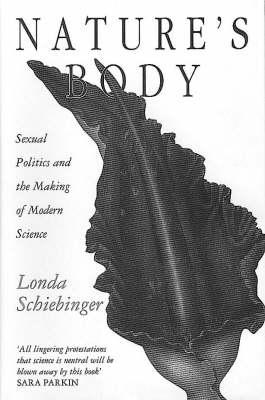Overview
The modern world places a great deal of faith in the objectivity of science. In this collection of essays, historian Londa Schiebinger reveals the sexual and racial preconceptions which affect the way that science is practised today. She takes the reader on a tour of Western culture and science in the 18th century revealing, for example, the way early botanists ascribed passionate relations, polyandrous marriages and suicidal incest to plant reproduction. History and reasoned analysis combine in these essays to form an argument for the restructuring modern science must undergo if it is truly to attain the objectivity it claims.
Full Product Details
Author: Londa Schiebinger
Publisher: Rivers Oram Press
Imprint: Rivers Oram Press/Pandora List
Edition: 2nd edition
ISBN: 9780044409076
ISBN 10: 0044409079
Pages: 304
Publication Date: 01 January 1993
Audience:
General/trade
,
College/higher education
,
General
,
Undergraduate
Format: Hardback
Publisher's Status: Active
Availability: In Print

This item will be ordered in for you from one of our suppliers. Upon receipt, we will promptly dispatch it out to you. For in store availability, please contact us.
Reviews
Much has been written about discrimination against women in science, including assertions that brain size and temperament precluded their ability to study and succeed. Schiebinger (History/Penn State; The Mind Has No Sex?, 1989) adds considerably more: She concentrates on 17th- and 18th-century European developments in taxonomy and physical anthropology to show how the European male became the prototype of the human race; how women were reduced to a subset noted only for sexual differences; and how people of color were placed at inferior levels of the great chain of being, on a par with apes. By celebrating sexuality in plants, Erasmus, Darwin, and Linneaus did much to set the stage for thinking of females in terms of sexuality alone - leading Linneaus to choose the term mammals to distinguish the order of warmblooded, hairy animals - but also to underscore women's role as nurturing caretakers. More shocking was the scholars' concern with female genitalia and sexual characteristics. The ideal breast was the pointed hemisphere of the European female, and Circassian women set the standard for beauty - hence the name Caucasian for the white race. Pendulous breasts were inferior - and African; so were enlarged labia. It appears that collectors and dissectors had a field day measuring vaginal angles and clitoral lengths, and attributing massive labia to various African females, including the Hottentot Venus brought to Europe for study. For most readers, it's bad enough to know that Aristotle and other ancient and medieval scholars were dupes to fable and traveler's tales. To learn that the dawn of modern science was equally clouded by politics, prejudice - and prurience - won't surprise feminist scholars but is disheartening. Schiebinger concludes with fresh insights on who should do science, as well as with further dismal accounts of tales of 20th-century bias. The very fact that she and others have enriched the record by their scholarly exposes, however, offers hope for the future. (Kirkus Reviews)



